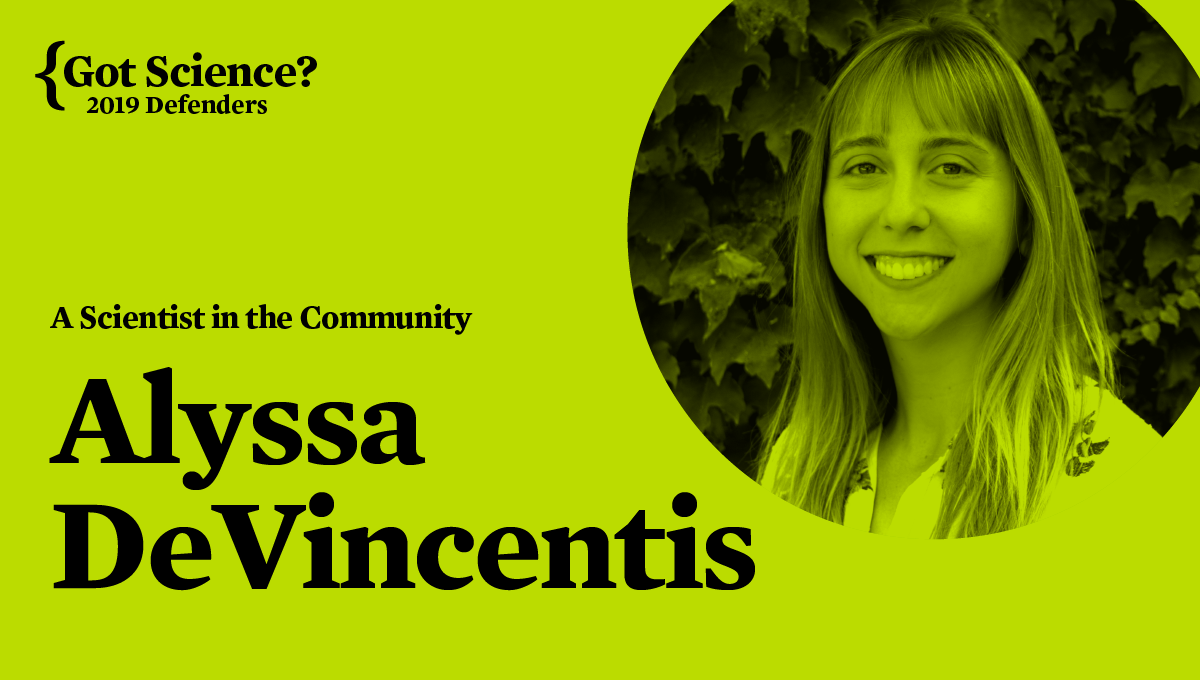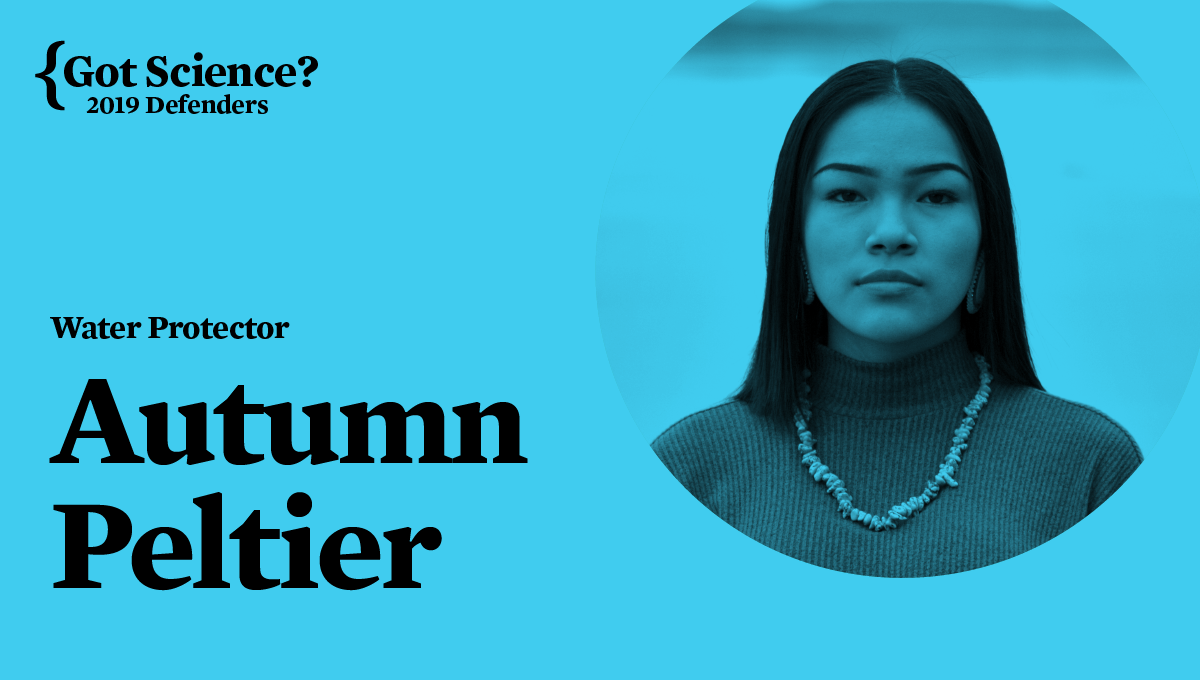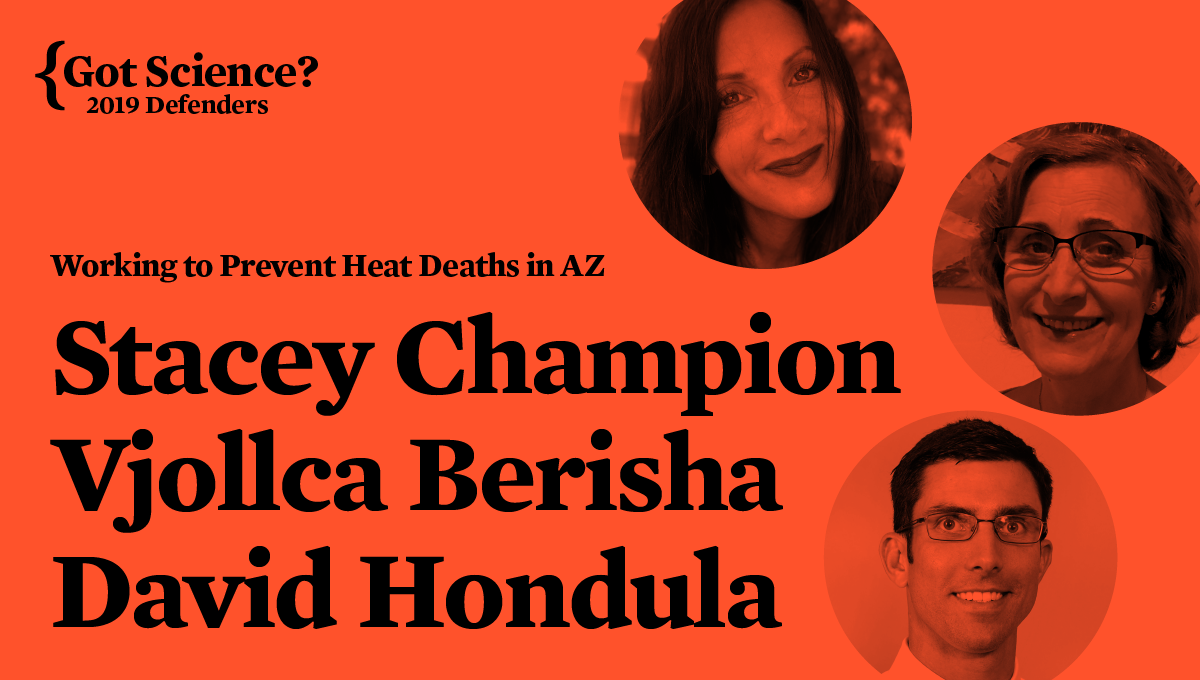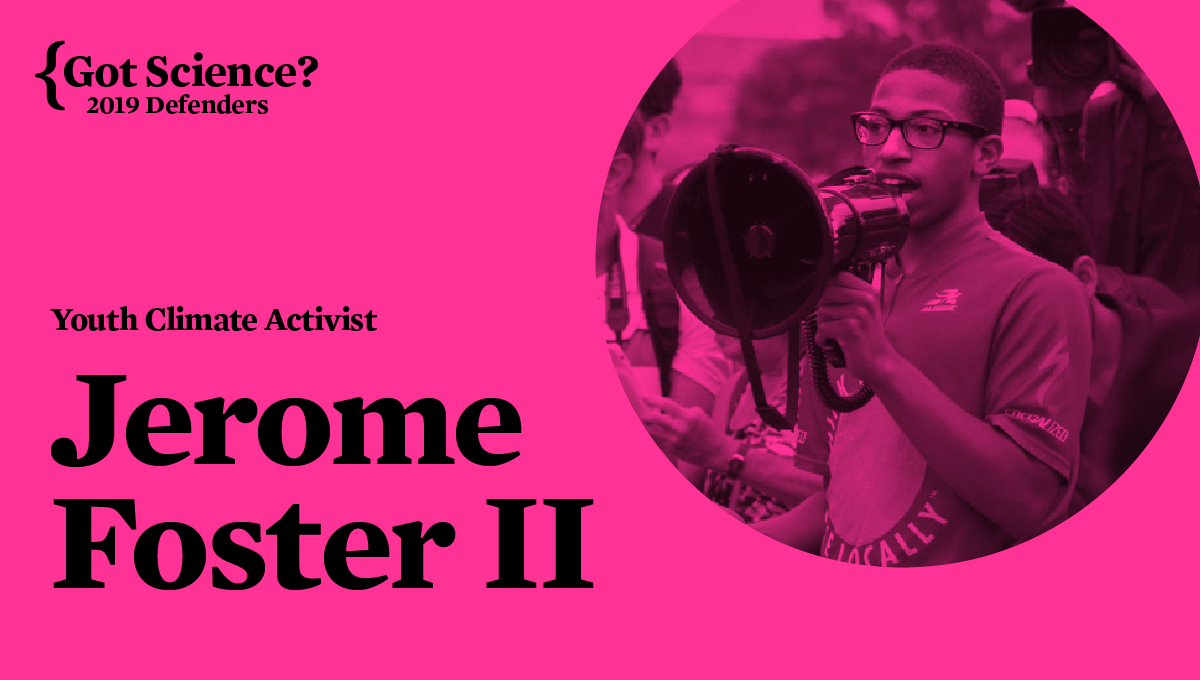In a difficult climate for science-informed decisionmaking, the following four individuals and groups have not given up on making positive changes where they can—from their own communities to the United Nations. The Union of Concerned Scientists is proud to honor each for taking a stand for science and the public good.

Alyssa DeVincentis: A Scientist in the Community
A PhD candidate in hydrologic sciences, Alyssa DeVincentis brings what she’s learned about agricultural water management out of her lab at the University of California, Davis, directly to the field. In a state continually afflicted by drought, DeVincentis shares her passion for water management directly with those who it affects. And as climate change continues to make it harder for farmers to grow food, DeVincentis is researching ways for them to become more resilient during periods of drought, and less dependent on water.
DeVincentis’ research is guided by her passion for taking time to connect with the community. She travels across California to farms that are affected by water scarcity, in order to train farmworkers in groundwater management processes and help them get involved in their communities’ groundwater agencies. “It's really critical to be able to spend time in those communities and understand the nuances of the challenges they face,” she says.
By engaging directly with communities, DeVincentis says scientists can inform their research choices based on people's needs. DeVincentis believes science should feel relevant to our lives, and works to make sure that what she studies in her doctoral program is accessible to a range of people. Whether she is working with farmers in the field or speaking to future scientists in classrooms, she is always seeking ways to share how science solves practical problems and brings positive change.

Autumn Peltier: Water Protector
When she was eight years old, Autumn Peltier traveled from her home in Wiikwemkoong Unceded Territory to another First Nations homeland in Ontario, Canada, where she was confused by unfamiliar restrictions on the local water. Signs on the walls warned against drinking the water, or even washing one’s hands with it. “My mom explained to me that the community had been on a boil-water advisory for over 10 years. I was shocked,” Peltier tells Canadian networking organization Women of Influence. When she did more research, she was even more shocked. “I discovered that many First Nations Communities in Ontario have been on boil water advisories for years,” she continues. “I thought, Canada is a resource-rich country, and we shouldn’t have this issue. I wondered, why only my people? It didn’t seem fair or right.”
Since then, Peltier, now 15, has been a water protector, bringing her message that everyone deserves access to clean water to the Assembly of First Nations, Prime Minister Justin Trudeau, the United Nations General Assembly, and the UN Secretary-General’s Climate Action Summit. This year, she was named the chief water commissioner by the Anishinabek Nation, a political advocacy group for 40 First Nations in Ontario. Currently, 56 First Nations communities across Canada live under boil-water advisories, the longest of which have lasted nearly 25 years. In some communities, the water is so contaminated that even brief skin contact risks exposure to carcinogens. “I’m lending my voice to speak up for water,” says Peltier.

Vjollca Berisha, Stacey Champion, and David Hondula: Working to Reduce Heat Deaths in AZ
“Phoenix, Arizona, is in the bulls-eye of climate change,” says Stacey Champion, climate activist and PR professional. Summers in the city and the surrounding Maricopa County are getting hotter, with serious health consequences—and disproportionate effects on people experiencing homelessness and/or living in poverty, who can’t afford high energy bills. Last summer, Champion worked to advance legislation requiring local utilities to keep power turned on during extreme heat events, so people wouldn’t die in their sweltering homes, unable to turn on air conditioning because of unpaid electricity bills. The legislation wasn’t passed, but a temporary moratorium on summer energy shutoffs for all regulated utilities was put into place, the first of its kind.
Champion connected with Vjollca Berisha, a Maricopa County epidemiologist, and David Hondula, a professor at Arizona State University, through their work with the Bridging Climate Change and Public Health Coalition (BCCPHC). Berisha says extreme heat is a public health issue: heat-associated deaths have increased for the past three years in the county, she says, with nearly 40 percent of these deaths occurring indoors. “People die or get sick due to lack of cooling systems in their residences,” says Berisha. “Some are forced to choose between paying their electricity bills or buying their medication. No one should have to do that. No one should have to die.”
Hondula adds that addressing heat-related deaths is the first obvious step towards adapting to climate change. “If we want to understand how climate and health risks are going to evolve in the future,” he says, “we need to figure out what should be the simplest story—heat and health—first. People’s lives are on the line.” The three, along with the BCCPHC and other partners, are working to provide evidence-based recommendations for managing extreme heat in Maricopa County. Berisha is optimistic that their collaboration can make real change. “We can drive the number of heat-related deaths to zero,” she says. “This is my ultimate goal.”

Jerome Foster II: Youth Climate Activist
A 17-year-old virtual reality developer, Jerome Foster II uses his computer coding skills to create three-dimensional videos that simulate any scene imaginable. While in school, Foster encountered one such immersive experience that showed immigrants being arrested at the border and felt that it failed to tell the entire story. Knowing there was more to immigration stories than arrests, he decided to design his own virtual reality experience of a 5-year-old girl’s trek from Guatemala to Southern Texas—launching his own journey into climate activism.
“In my pursuit of understanding their entire story I was able to learn that [their migration] was actually linked to the climate crisis,” Foster says. “The droughts in Central America and the heatwaves: those have been caused by the climate crisis, and those are causing mass migration.” He began thinking about the interconnectedness of other issues facing his generation—how misogyny can feed into gun violence, or how racism can depress youth voter turnout—and decided that linking these issues could help create real change.
This was Foster’s inspiration to found OneMillionOfUs, an organization that unites climate change with other social issues that affect young people, such as gun violence, gender and racial equity, and immigration. Foster hopes to build the momentum of activism around these causes to increase youth voter turnout. Foster also participates in FridaysForFuture, a global youth-led movement to strike every Friday in protest of climate inaction. He finds motivation in the interconnectedness of different movements that matter to him. “I hope that more and more young people are introduced to the climate movement and understand that this is a deep, systematic problem that everyone's facing,” he says.




